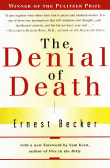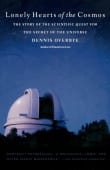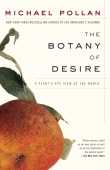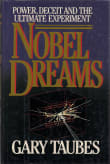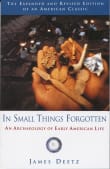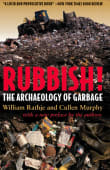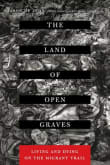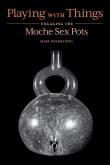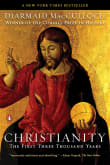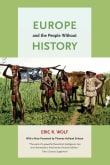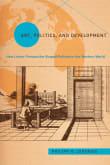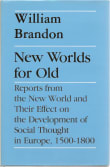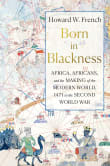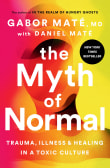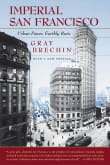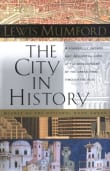The Dawn of Everything
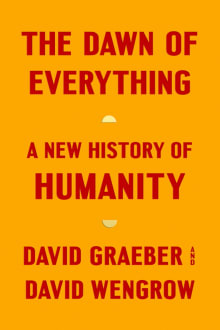
Book description
INSTANT NEW YORK TIMES BESTSELLER
A dramatically new understanding of human history, challenging our most fundamental assumptions about social evolution—from the development of agriculture and cities to the origins of the state, democracy, and inequality—and revealing new possibilities for human emancipation.
For generations, our remote ancestors have been cast as…
Why read it?
14 authors picked The Dawn of Everything as one of their favorite books. Why do they recommend it?

This is a “big history” book that covers many layers of human relationships with the natural world. The primary focus is what we typically refer to as prehistory and the origins of culture, agriculture, settlement, and the state.
What makes this book so compelling is that the authors counter so many traditional, post-colonial interpretations of these questions. They revitalize our respect for traditional knowledge and the wisdom of pre-industrial cultures while reinforcing our sense of wonder at the multitude of cultural forms and possibilities.
This is especially important as they consider questions of participation, equity, and social justice in it's…

A psychologist I happened to meet on a food tour in Atlanta recommended this to me when she learned I was a historian.
I admit to being dubious because I generally don’t have much time for sweeping histories of humanity, but this is of an entirely different order. It starts with a compelling question: when and how did we – humanity – get ‘stuck’ in a set of relations defined by extremes of social, economic, and political inequality and incapable of imagining any alternative?
It then spends most of the book demonstrating that it wasn’t ever thus, engaging in extraordinarily…

The Dawn of Everything is a fairly dense academic tome, but it was eye-opening and very important, and I thoroughly enjoyed reading it.
In world-building for my own books, I try very hard to start from the ground up, rather than seizing common European-style settings and tropes, unless I want to use them for a deliberate reason. And The Dawn of Everything pushes against this Euro-centric worldview even harder, arguing that most assumptions we make about various types of historic societies are wrong, and our current paradigm is only a fleeting, non-representative creation.
I was especially fascinated to learn that…

This incredibly readable work of anthropological discovery helps put a bow on the last 40 years of research on the topic of who we are and how we got here.
The most incredible takeaway is that we didn’t have to end up in a world of nation-states, that throughout pre-history and beyond, there have been people and cultures that were truly egalitarian and humanistic, and that we can become that way again.
It’s one of my favorite books of non-fiction ever because it gives me hope that perhaps our children or their children will remake a better world.

What ideas do you have about what the first peoples were like, and how human society developed?
Maybe you’ve even read the popular authors on this topic such as Diamond, Harari, Pinker, Hobbes, and Rousseau. Prepare to have all of your notions and received opinions upended and turned to dust by David Graeber (a man universally acknowledged as a genius) and the book he worked on for the last ten years of his life, which brings revolutionary ideas to 30,000 years of civilization.
From Craig's list on history that will wake you up.

As a serial freelancer with an uneasy relationship to authority, one of my small obsessions is freedom (and how I can achieve it whilst still earning money). Because freedom is a theme in my life it's also a theme I seek out in the stories we tell ourselves.
Here's a story. Once upon, a time we subsisted in small roving bands and all lived in a kind of anarchy. Either that was a good thing (Rousseau) or a very unpleasant one (Hobbes). And then, with an agricultural revolution, came a change. More settled people and, later, more people still in…
From Matt's list on non-fiction that turn their topics upside down.

Everything we’ve been taught about the rise of so-called civilization – that it originated in early city-states built on agriculture, and required by its very nature inequality and hierarchy – is wrong.
David Graeber, an anthropologist, and David Wengrow, an archaeologist, leave conventional wisdom behind and take us through what the data actually show about the past 30,000 years of human societies.
Full of surprises, this is a book that leads to radical thinking about our possible futures.
From Kate's list on busting common myths about our human nature.

Forget everything you’ve been told about “prehistory:” the tales of small bands of hunter gatherers living isolated lives as noble savages.
This huge book up-ends everything you thought you knew about the 200,000-odd years when our ancestors were believed to have been wandering around living in either a garden of Eden or a savage hellscape pitting man against nature.
The authors say it’s impossible they all lived exactly the same way for so long a time, and dig up evidence that they had in a vast and fascinating variety of societies, building monumental structures and often actively rejecting farming because…
From James' list on showing that you only think you know who you are.

Idealistic people, young or old, who dream of a society in which society is not based on power structures are constantly told to get real. It’s always been this way, and always will be. Anthropologist David Graeber and archaeologist David Wengrow worked together for ten years to show how that’s just nonsense. For thousands of years, between the end of the Ice Age and the start of recorded civilization, societies across the world didn’t put people into a hierarchy in which people dominate those below them. Many of these societies lasted hundreds of years. They had agriculture, technology, and art.…
From Keith's list on how community can save society.

I loved the speculative audacity of this alternative story of how human civilizations evolve—a collaboration of an anthropologist and an archeologist. The authors take aim at two foundational myths of the human journey. First, they argue that we should not accept as universal an increasingly sophisticated and hierarchical trajectory from hunter-gatherers to farmers to city-dwellers. They present evidence of civilizations that voluntarily abandoned urban life for a return to agricultural and even hunter-gatherer existence. In a second major contribution the authors weave an intriguing and plausible narrative of the possibility that the articulation of the ideals of the enlightenment was…
From Noel's list on myth demonstrating why sustainability matters.
Want books like The Dawn of Everything?
Our community of 10,000+ authors has personally recommended 100 books like The Dawn of Everything.
Browse books like The Dawn of Everything
5 book lists we think you will like!
Interested in hunter gatherers, archaeology, and the Age of Enlightenment?
10,000+ authors have recommended their favorite books and what they love about them. Browse their picks for the best books about hunter gatherers, archaeology, and the Age of Enlightenment.

